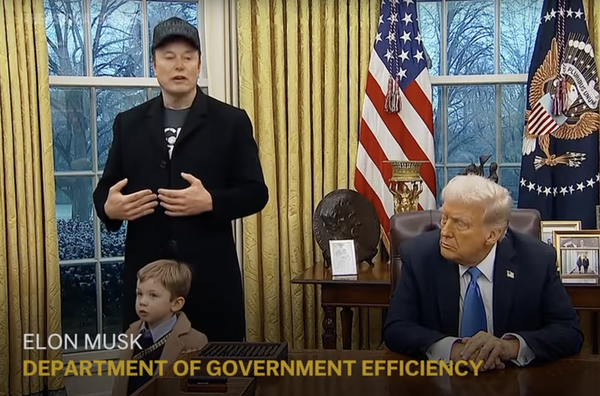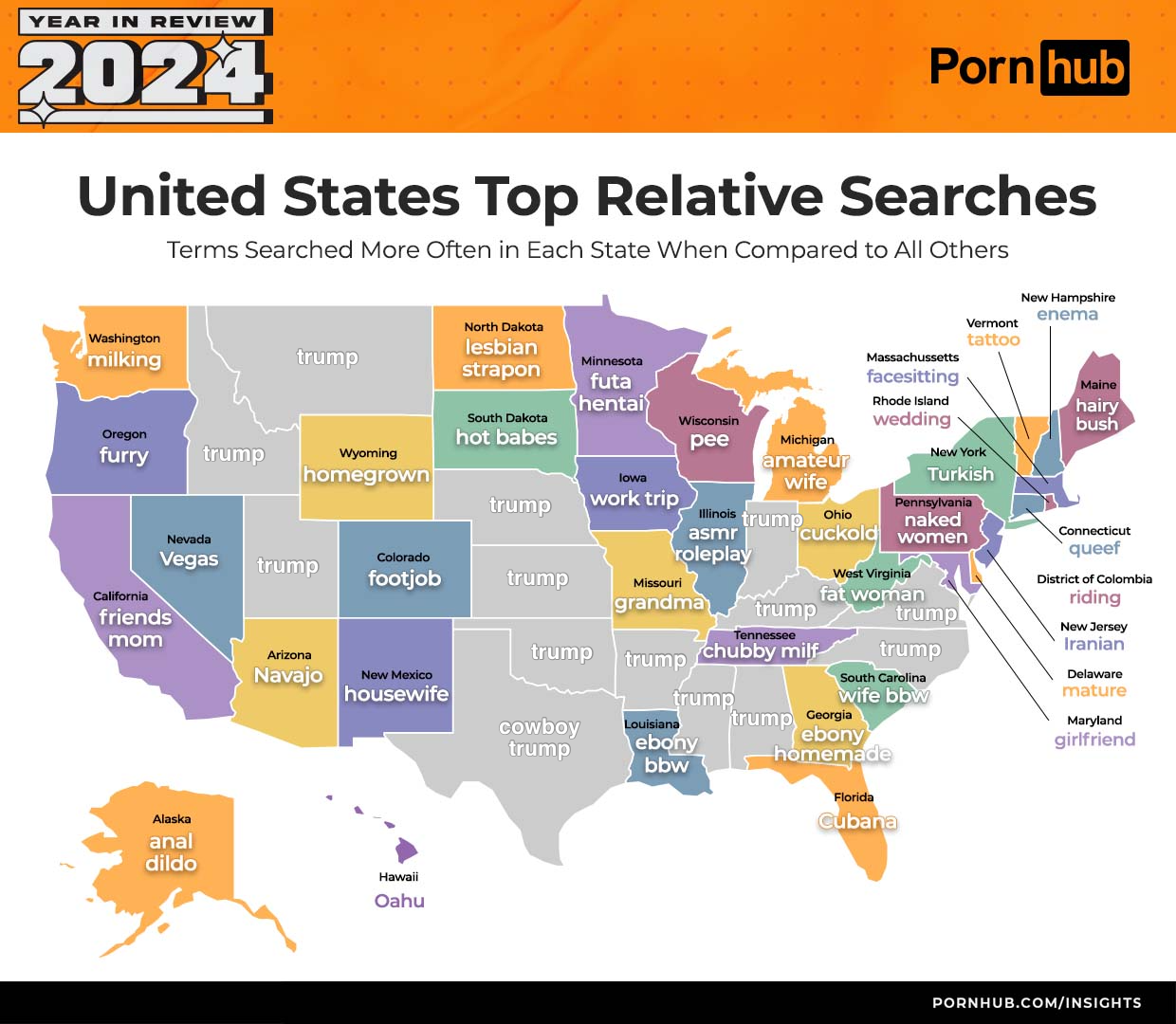My wife and I work out of the same office, and we bring our dog, Koda, in with us every day. My car doesn’t have upholstery so much as a thick, semi-permanent layer of dog hair all over the back seat.
Koda is very excited about going to work — significantly more than I am, probably because he gets to nap all day — and will charge out to the car as soon as Joanne and I are both wearing shoes and even feinting towards the door.
This is why we have a collection of videos of him being absolutely atrocious at limbo.
You can have a pretty good career as a technology pundit just by saying, at length and repeatedly, “That’s dumb.”
Because, of course, most tech is dumb, doubly so recently, as companies fall over themselves chasing the next smart-phone level hit. Bad products happen every day, but it takes something really special to be a bad paradigm shift. You have to really fail to change the world.
The list of such industry-wide failures is easy to rattle off: VR, 3D TVs, cryptocurrency, DAOs, web3, NFTs, the metaverse, Each of these inspired massive investment and breathless coverage and talk of a “before” and “after” without actually, y’know, doing anything. Sometimes the tech worked, sometimes not. Sometimes there were ethical or legal issues, sometimes not. Sometimes legs were included, sometimes not.
But what it comes down to is, there was no sane, general-purpose use-case for any of this stuff. Nobody wanted it, despite how easy it was to get swept up in the hype. They made movies about VR, for cryin’ out loud.

(Ten years ago, my friend Leonard took this picture of me using his Oculus development kit. He made it BY-SA so that it would be freely available to anybody, and thus showed up as the hero image on lots of articles about VR porn.)
All this, of course, brings us to “AI.”
(I’m going to use “AI” throughout, even though I understand that the term has been neutered enough to mean large-language models, diffusion models, and / or “generative AI” specifically. Poor “AI.” I remember when you were expert systems.)
The current AI hype has presented me with the same dilemma I faced with cryptocurrencies: there’s something that feels wrong about it. It’s not about the tech — I understand how blockchains work, just like I understand how LLMs work — but the use of the technology leaves me uneasy. My gut doesn’t like it, and my brain struggles to figure out why.
The conclusion I came to about crypto — my core problem with it, standing at least a little above all my other problems with it — was that it doesn’t produce anything. Nothing is created. It doesn’t add value. Oh, sure, it’s a very convenient way to pay for heroin or murder, but we’re almost ten years on from the creation of Ethereum (which is way more interesting than Bitcoin, and what I dabbled in), and the only core functionality that’s been added to the heroin and murder is fraud. The tech is neat, but the most popular, most primal use-case is to get other people to invest in it, and then sell when the price goes up. I don’t need a blockchain or distributed virtual machine to do that. The whole crypto “investment” “industry” is based on the transfer of money from one pocket to another, with no work-product in between.
I don’t feel comfortable participating in that system, like I don’t feel comfortable eating puppies or voting Republican. Maybe I’m missing out — fine. I don’t want to take other people’s money without offering something in return. I know that makes me a bad capitalist and / or con-man. I can live with that. Other people can do what they want with it — and will, absent significant consumer protection regulation — but I’ve decided it’s not for me. It doesn’t fit.
AI feels the same way. There’s something wrong with it. The software is neat, the results are interesting, but the fact that the entirety of tech culture and the tech economy is rushing towards it with arms wide and mouth open is deeply upsetting. I’m trying to figure out why I think so.
If you ignore the ethical, environmental, economic, and societal issues associated with AI — and you pretty much have to if you’re going to not immediately walk away in disgust — you’re still left with a few reasons to do the left side of the kombucha-lady meme.
AI, of course, is just plain-old, flat-out wrong sometimes. There have been lots of amusing cases you’ve surely seen — glue pizza! ha ha! — but the fact is, the inaccuracies are a fundamental aspect of the technology. You can tweak and adapt and refine, but an LLM is constrained by its training data, and the only thing big enough to provide the needed context is the Internet, and the Internet — if you haven’t noticed — is garbage. We’ve actually made computers less accurate. The Pentium bug was just a branding problem.
But it’s not these failures that bother me so much as the fact that they’re accepted, as matter of course. If there’s a way for a company to jam AI into their user’s forward-facing orifices, they’re doing it, actual results be damned. Computers are supposed to be making things better, dude. When people get something involuntarily shoved up their nose, it’s annoying.
New rule: If your latest feature is prominently shown at the top of the screen, with call outs and animations and an ad campaign, you don’t get to call it “beta.” The tiny, grey-on-white labels under AI results are the the cancer-warnings of the technology industry:
- “Generative AI is experimental.”
- “AI can make mistakes, check important info.”
- “60% of the time it works every time.”
- “Look, everybody else is rushing this stuff out, so if we don’t, our board is going to want to know why. The fact that it doesn’t always work doesn’t really figure into it. Half our VCs are ketamine-crazed vampires and the way their forehead vein throbs is really unsettling. I need this bonus, man.”
And it’s not just that you can’t trust what AI produces without review by someone who already knows, it’s that you can’t trust what anybody who uses what AI produces either, all the way back up the chain. Someone in a lettuce factory forgets to wash his hands, and they’re recalling chef salads two thousands miles away. AI hallucinations are the aerosolized poop flecks in our information diet.
What level of that particular metaphor you’re wiling to live with is, of course, a personal decision. Hell, the American body politic decided to elect poop flecks to the Presidency. Maybe they don’t care. Maybe they don’t have a problem with it. Maybe it will go away eventually.
But I’m firmly of the belief that AI is stuck with it, like a congenital heart defect that everybody is surprised to find out about after they’ve buried Timmy. Throwing more cycles and more (increasingly incestuous) data at an LLM isn’t going to produce the next obvious step in AI evolution: AGI, or artificial general intelligence, or “what we used to mean when we said ‘AI’ five years ago,” or actual consciousness, or the only way to move from a stochastic parrot to a thinking, reasoning, deducing, actual, honest-to-God brain. But then, I don’t run a money-losing $150B company that needs to convince people to keep investing, either.
All this, though, is largely besides the point. I just needed to include it as part of my membership in the take-industrial complex. I get paid by the word.
For me, the primary reason that AI sticks in my craw — modulo the elided ethical, environmental, economic, and societal issues; on a philosophical level — is this:
I like what I do, and I don’t want a machine to do it for me.
When I hear people talking about integrating AI into their workflows, into their work — especially when I hear it from coders — the primary benefit they cite is productivity enhancement: more stuff gets done faster. You can fly right past obstacles, without wasting any time understanding them. Judging by video blogs from programmers with gamer chairs and an on-camera mic arm, this is a good thing.
But I like coding. I like writing. I don’t want them to be completed more efficiently or more productively. It’s not always enjoyable to struggle through a bug, but finding it and fixing it are sublime pleasures. First drafts are supposed to be lousy and rambling and pointless and awkward — that’s my excuse anyway — and it’s fun to clean them up, and have ideas click together, and to turn into something that, just maybe, communicates the intended meaning.
Why would I farm any of that out to a machine? In a society built on the relentless cycle of production and consumption — faster! faster! more! — the act of understanding, of caring, of craft is almost rebellious. Why would I have picked programming as my career if I didn’t enjoy it? Why would I sit at the keyboard and pound out this stupid post if it didn’t mean something to me? The goal isn’t to get out of doing the work, because the work is the whole point.
This is an important, I think. My goal — maybe not your goal, certainly not my boss’ goal, perhaps ultimately not society’s goal — isn’t to just get to the deliverable as quickly and cheaply as possible. My goal is to enjoy it.
No matter what else AI is, it’s automation, and when you automate something, something you really care about, you have to contend with the existential notion that — and I’m not going cite the source here, out of irony — the journey is the reward. I find meaning in the doing, not in the having. And, frankly, I’m desperate for meaning. I think a lot of people are.
Maybe this means I’ll be “left behind,” and I’m fine with that. It’s just another version of “Have fun staying poor,” which I am. Heck, maybe this is how things are supposed to go, one generation bewildered by another, with the old ways being cast aside by the newer, “more productive, more efficient” models and methods.
But I can’t help but think that understanding is timeless, or should be. Several years into my career, I was stumbling through my first Windows program — VC++ and MFC, baby! — and I came across Ellen Ullman’s seminal two-part essay, “The Dumbing-Down of Programming.” From the first part:
My programming tools were full of wizards. Little dialog boxes waiting for me to click “Next” and “Next” and “Finish.” Click and drag and shazzam! — thousands of lines of working code. No need to get into the “hassle” of remembering the language. No need to even learn it. It is a powerful siren-song lure: You can make your program do all these wonderful and complicated things, and you don’t really need to understand.
[…]
This not-knowing is a seduction. I feel myself drifting up, away from the core of what I’ve known programming to be: text that talks to the system and its other software, talk that depends on knowing the system as deeply as possible. […] It is like the relaxing passivity of television, the calming blankness when a theater goes dark: It is the sweet allure of using.
And from the second, with the older technology of “Wizards” replaced with “AI,” just to be as wildly unsubtle about it as possible:
Every [LLM], every [AI], says to the programmer: No need for you to know this. What reassures the programmer — what lulls an otherwise intelligent, knowledge-seeking individual into giving up the desire to know — is the suggestion that the [AI] is only taking care of things that are repetitive or boring. These are only tedious and mundane tasks, says the [AI], from which I will free you for better things. Why reinvent the wheel? Why should anyone ever again write code to put up a window or a menu? Use me and you will be more productive.
[…]
In the end, the overall “productivity” of the system, the fact that it came into being at all, was the handiwork not of tools that sought to make programming seem easy, but the work of engineers who had no fear of “hard.”
I didn’t agree with everything Ullman wrote back then. (The 37-year-old essay is wrapped around a proto-“Year of Linux on the Desktop” argument.) But her basic premise hit me hard enough that I took apart all the convenient MFC macros that just made things happen, to see how they worked, to understand them. This paid off repeatedly, as I came across situations and features and bugs that didn’t all look like nails, and that I couldn’t hit with the MFC-shaped hammer I was holding. I put in the effort and earned a more nuanced, complicated understanding of the tools I was using, and could manipulate them in more nuanced, complicated ways. It slowed me down, absolutely, but it also resulted in the product being a better program and me being a better programmer.
And I think that’s what alienates me from the rising culture of AI-driven coding: 10x yourself! Code in languages you don’t know! For systems you don’t know! Awesome! [Guitar riff.]
But, again, I don’t do what I do because I want to get out of doing it. I don’t want my work — an enormous part of my life, for good or ill — to be optimized away. I code because I like solving problems, and seeing those solutions be used by others. I write because I like to communicate, even if it’s just to myself. I like that this is the third time I’m typing “poop flecks.”
Other people have other goals, other considerations, other priorities. There are plenty of smart, caring people who just want to get something done and code, to them, is a burden, an impediment, a roadblock.
But not for me. As I rattle towards the end of my career, I find myself actively opposed to the idea of “faster.” Faster breaks things — intentionally or not — like Production and governments and people. Does this insanely incautious and incurious industry really need to be faster? Does this society?
I sure as hell hope not, because I’m already running as fast as I can. I think it’s time to stop, turn around, and see what we might have left behind.
I’m a baseball fan, and baseball is absolutely lousy with statistical measurements. Plenty of people will complain about Sabermetrics — and I’m occasionally one of them — but they can help strip away all the noise and cruft and extraneous factors to really focus on what you’re talking about.
So I’d like to start doing the same for politics. There is so much (fully intentional) chaos and confusion and misinformation going on that it’s hard to take it all in, even if you actually want to. And you very much do not want to.
For instance, Trump is a first-ballot hall-of-famer for his “WPD” or “Watergates per Day” alone. How many Watergate-level, Constitutional crisis-inducing crimes and abuses of power is Trump committing every single day? Two? Three? Let’s say he’s got a 2.5 WPD in just his first month. Sure, he’s been getting a ton of corruption-assists from his team, and he’s likely juiced up on Adderall and narcissism, but his record is incredible by any measure. If he was actually President, imagine how high it would be. Imagine how high President Musk is.
Contrast this with Trump’s record 0.96 9PD, or “9/11s per Day,” that he achieved during COVID.
He’s really stepped down his game, and will stop at nothing to be the absolute worst. You have to not admire that.

President Musk gave a press conference in the Oval Office yesterday, flanked by a bored four-year old and his son X Æ A-Xii.
With Trump having successfully rebranded the Gulf of Mexico as “The Gulf of America” — and tech companies happily following along like eager puppies, tripping over themselves to be first — it’s only a matter of time until he starts auctioning off the naming rights to other things that aren’t his: the Jeep Grand Cherokee Canyon; Mount Rushmore Extreme, brought to you by Doritos; and UsaX, Elon Musk’s “everything government” where nothing works, but you can say slurs.
The second Trump Administration is only three weeks old, but it’s already committing treason at well beyond the four-year level.
The California DMV has rules for custom license plates — specifically that they cannot “carry connotations offensive to good taste and decency.”
It occurred to me to check on this, because I recently ran across a photo I took fifteen years ago:

How this license plate got approved is raising questions already answered by this license plate.
There’s not much point in accusing Republicans of hypocrisy because they treat it as a compliment and sign that they’re headed in the right direction. But when conservative lawyers — graduates of Ivy League law schools, including Vice President Couchfucker — pretend that the separation of powers and checks and balances built into the core of the Constitution don’t mean what they clearly mean, and have meant for almost 240 years, well, I don’t think they get to call themselves strict constructionists any more. Their claim to being Americans is now limited to geography.
This ground (and head) softening is in service of justifying the inevitable executive disregard for valid judicial orders. Extra-executive busy-body Elon Musk is already calling for the ouster of the judge who told him to maybe slow down a little with the government-breaking, like, maybe we should look to see if this is actually, y’know, legal or something.
What happens when the executive branch simply ignores these orders and the Republican majorities in Congress cheer them on? When happens when the “leaders” of this country stop pretending they don’t understand its founding documents and simply decide they don’t matter anymore? Trump loves Andrew Jackson for his racism, but would undoubtedly agree with “John Marshall has made his decision, now let him enforce it” if he could read.
The tree of liberty is looking pretty parched.
Yesterday, Trump said he had fired several members of the board of trustees of the Kennedy Center for the Performing Arts, and would be naming himself as chairman. For the record, he did not attend a single event at the Center during his first term.
This is, of course, insane. Caligula’s horse was more qualified.
The upshot, I presume, is that one of America’s premier arts organizations will now feature an endless parade of concerts by the shambling, reanimated corpse of the Village People, noted lite-beer assassin Kid Rock, and the shambling, reanimated corpse of Lee Greenwood.
I’d say Trump is drunk with power, but he doesn’t drink. So I guess he’s stupid with power.
Three things:
-
The Wiltern Theatre is an iconic music venue, and an architectural masterpiece. Along with the likes of the Pantages Theatre and Griffith Observatory, it represents Los Angeles in its 1930s art deco prime.
The bottom floor of the venue has removable seating, so some concerts can have seats on the orchestra level and some can open up the space for standing room only. When I was buying tickets for Bright Eyes, the ground floor was SRO, so I opted for the mezzanine. My rock-and-roll knees and my rock-and-roll lower back — even with my rock-and-roll orthopedic inserts — no longer allow me to stand in one place that long, and a Bright Eyes show isn’t going to have a mosh pit.
So I get a seat and a view — front row, baby — because the mezzanine is, I’d assume, a balcony.
But I’d never been upstairs at the Wiltern before, and it turns out that the mezzanine is the back half of the second floor, with the loge taking up ten or twelve rows in front of it, and an aisle running the width of the theatre between them.
This means that my front-row seat was actually perfect for viewing people using the aisle during the show, which seven thousand of them did.
- My wife can now add “rock concert” to the list of places she’s fallen asleep because it’s after 8:00pm and she’s sitting down.
- Conner Obrst dances exactly like you’d expect.
Elon Musk — the Hitler-saluting, white-supremacist, drug-addled, top clearance-denied, meme-begotten private citizen and richest person in the world, who has said in the past that he is in regular contact with Vladimir Putin — is now in unilateral control of the Office of Personnel Management (OPM), the General Services Administration (GSA), the United States Agency for International Development (USAID), and the computer systems at the Treasury Department.
He has full access to every detail the government has on millions of people, companies, and organizations, including his competitors and perceived enemies.
He and a group of a few young acolytes / co-conspirators — who may or may not have clearance and may or may not be US citizens, but who are definitely not government employees or bound by an oath to the Constitution — are deciding which programs that have already been approved and funded by Congress will get their money and thus continue to exist. Taxes wishes it had that kind of power to destroy.
Meanwhile, the ostensible President is golfing, declaring economic war on allies, and blaming sexual harassment seminars for plane crashes, in that order.
Just as the Founders intended. Quoting Hamilton in Federailst 420, “Duuuuuude.”
Every year, Pornhub releases aggregate information about what the people who visit the site search for, and breaks it down in various ways. And you thought statistics was boring.
For instance, they produce a map of the United States with each state labelled with the term used by residents of that state more than any other. This allows them to exclude generic queries like “pretty lady” and “dildo from se7en” and “someone who looks like Winona Ryder from, like, 1990 or 1991, but not in a creepy way,” which I assume is a search that everybody does. What they end up with is a view into the frankly upsetting predilections of specific geographic regions. Really, Wisconsin? Really?
Except that a bunch of states on the map are grey, and have no labels. These are the governments that have implemented age-verification policies that require porn sites to collect information about visitors — Pornhub blocks those states so it doesn’t have to maintain a database of its users. These laws are always justified with a hearty “Think of the children!” but require that everyone who visits give detailed information about themselves, including adults.
Good thing data never leaks or is hacked! Ha ha!
Luckily, the statisticians here at EOD Labs have done extensive research into the deepest psychosexual desires of these Pornhub-less states, and have been able to produce reliable data on what the people who elected these governments would have searched for, if they had something up their ass other than a stick.

I think Alaska also searched for “trump” but they just edited it.
We are about fifteen minutes away from Trump commanding the tides to retreat and assigning the task to Musk.
Musk will then demand that every government employee drink ten gallons of seawater. A surprising number will do it.
Trump will then blame Black people when the plan doesn’t work, citing Jimmy the Greek as a source.
“Just following orders” doesn’t work out for anybody.

 Atom Feed
Atom Feed